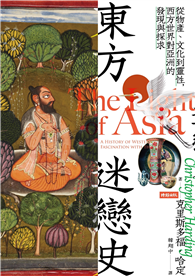This book examines cross-cultural encounters of the Jesuit missionary enterprise in early modern Southwest Asia. It analyzes the early mission to Syria, paying attention to the key interlocutors of the Jesuits and the many challenges they experienced in their exchanges with other Europeans, Ottoman officials, and Eastern Christians. It demonstrates that there was nominal Muslim-Christian dialogue and important relationships formed between the Jesuits and their Christian and Muslim hosts. The Jesuits in Syria shows that the Jesuits worked in a very complex environment, where competing factions of Europeans, European religious, Eastern Christians, Arab Muslims, Turkish officials, and Turkish Muslims, not to mention "renegades," played important roles.
The book examines missionary correspondence and other complementary sources. It also contrasts the way that the Jesuits wrote about their efforts internally with how they addressed the same topics in "public" documents, either printed or manuscript. It shows that the Jesuits described Islam and Syria in several ways, depending on the nature of the sources. For internal audiences, they wrote of their challenges with Franciscans, French, and Venetian consular figures, and Ottoman officials. For the broader public, whether in Jesuit colleges or in print, they harped on the problems posed by "schismatics" and Muslims. In this way, this volume enriches the story of the early modern Mediterranean.
| FindBook |
有 1 項符合
The Jesuits in Syria: 1625-1683的圖書 |
 |
The Jesuits in Syria: 1625-1683 作者:Tadros 出版社:Palgrave MacMillan 出版日期:2024-07-27 語言:英文 規格:精裝 / 普通級/ 初版 |
| 圖書館借閱 |
| 國家圖書館 | 全國圖書書目資訊網 | 國立公共資訊圖書館 | 電子書服務平台 | MetaCat 跨館整合查詢 |
| 臺北市立圖書館 | 新北市立圖書館 | 基隆市公共圖書館 | 桃園市立圖書館 | 新竹縣公共圖書館 |
| 苗栗縣立圖書館 | 臺中市立圖書館 | 彰化縣公共圖書館 | 南投縣文化局 | 雲林縣公共圖書館 |
| 嘉義縣圖書館 | 臺南市立圖書館 | 高雄市立圖書館 | 屏東縣公共圖書館 | 宜蘭縣公共圖書館 |
| 花蓮縣文化局 | 臺東縣文化處 |
|
|
圖書介紹 - 資料來源:博客來 評分:
圖書名稱:The Jesuits in Syria: 1625-1683
內容簡介
|











